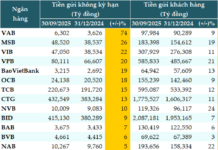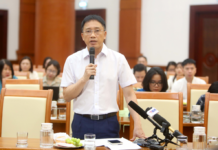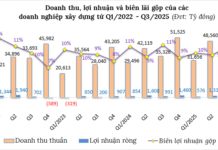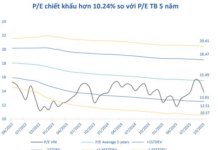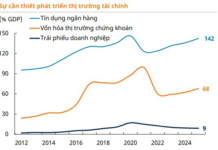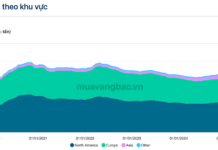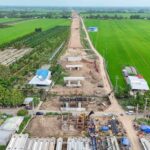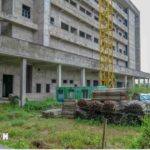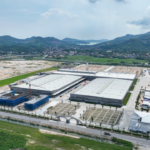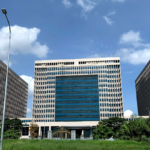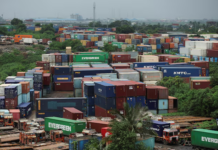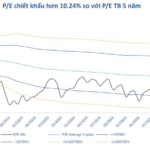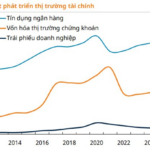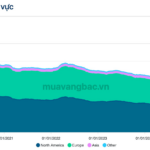
After nearly eight years of construction, the Can Tho Cancer Hospital project—a key healthcare initiative for the region with an investment of over VND 1.7 trillion—remains incomplete. The project halted in 2022 after finishing only the rough construction. A recent Government Inspectorate report highlights multiple violations, recommending accountability for city leaders and involved parties. Meanwhile, residents eagerly await the completion of this much-needed specialized cancer hospital.

Approved in 2017, the Can Tho Cancer Hospital project was designed with a 500-bed capacity and an investment of over VND 1.7 trillion, funded by an ODA loan from the Hungarian government and local budget contributions. However, construction stopped in July 2022 at 80% completion due to the loan agreement expiring.

The Government Inspectorate found that the joint venture contractor failed to meet the requirement of sourcing over 50% of goods from Hungary. At the time of suspension, only 1 out of 123 pieces of equipment (0.78%) was of Hungarian origin. Responsibility lies with the joint venture (for providing false information) and the Can Tho Department of Health (as the investor), which falsely reported a 50.07% compliance rate. Image: Many sections of the hospital remain at the foundation and concrete frame stage, now overgrown with weeds.

The Inspectorate also noted that the Can Tho People’s Committee approved the project without the Ministry of Health’s consent. The project, classified as Group A, underwent only two design stages instead of the required three. Approval was granted before the environmental impact assessment was completed, and a two-year delay in design adjustments resulted in over VND 11 billion in storage costs. Image: Concrete structures covered in dust, moss, and rust after years of exposure to the elements.

The Government Inspectorate concluded that the Can Tho People’s Committee, Department of Health, joint venture contractor, and consulting units committed violations and shortcomings during implementation. These led to project delays and potential losses of approximately VND 300 billion in loans and local budget funds.

Notably, the EPC contract was awarded through direct procurement without adhering to the Law on Bidding. Technical specifications were inaccurate, and the contract lacked clarity on equipment origin, codes, and manufacturers. The contractor repeatedly changed equipment without facing penalties. By July 2022, when the loan expired, only 21.3% of the contract value had been completed.

In October, the Prime Minister inspected both the existing cancer hospital and the stalled project. He directed relevant ministries and Can Tho to switch to domestic funding to resume construction, aiming for completion by 2026. The Inspectorate recommended recovering over EUR 3.8 million in advances paid to the joint venture and urged the Prime Minister to hold Can Tho leaders accountable for the identified shortcomings. The Chairman of the Can Tho People’s Committee was instructed to determine the severity of violations by the Department of Health and related units for legal action.

The Government Inspectorate also released findings on Component 2 (Can Tho section) and Component 4 (Soc Trang section) of the Chau Doc – Can Tho – Soc Trang Expressway Phase 1. These components have total investments of VND 9.725 trillion and VND 12 trillion, respectively, funded by the state budget. Before provincial consolidation, Component 2 was managed by Can Tho, and Component 4 by Soc Trang.

For the expressway project, the Inspectorate identified missing tender regulations on prohibited acts, technical criteria, and competition guarantees. Contracts with subcontractors violated regulations. The investor failed to approve detailed phased schedules or penalize contractors for delays. Supervision consultants lacked regular reports and on-site inspections. The project management board’s capacity was inadequate, with many staff lacking or holding expired professional certifications. Both supervision and construction contractors deployed personnel and equipment inconsistent with contract terms.

Component 4 faces significant delays, particularly in road foundation work, risking non-completion by the July 2026 deadline. As of July 2025, only 24.9% of the annual disbursement plan had been achieved, prompting the project management board to request a VND 1.5 trillion reduction in central budget funding. The Inspectorate attributed delays and violations to poor coordination among management agencies, weak organizational capacity, and non-compliance in bidding and contract supervision.

Based on the identified violations, the Inspectorate recommended the Prime Minister hold leaders of the former Can Tho People’s Committee and Soc Trang Province accountable for shortcomings in Components 2 and 4 of the expressway project. Can Tho was instructed to review the entire project and refer any criminal evidence to investigative agencies. Photo: N.H.
Progress of 22 Expressway Projects Spanning 733km Ahead of the Historic Moment on December 19: Inauguration of 3,000km Expressway from Cao Bang to Ca Mau
Experience the future of travel with the highly anticipated highway inauguration on December 19th. This groundbreaking route seamlessly connects Cao Bằng to Cà Mau, passing through key destinations such as Lạng Sơn, Hà Nội, Central Vietnam, and Ho Chi Minh City. Get ready to embark on a transformative journey across Vietnam’s diverse landscapes.
PetroVietnam’s Response to the Ministry of Foreign Affairs’ Headquarters Proposal
Petrovietnam, the National Oil and Gas Group of Vietnam, has tasked its relevant units with initiating procedures and coordinating with the Ministry of Foreign Affairs to acquire the project at 2 Le Quang Dao, Hanoi. This strategic move aims to develop a new office headquarters, marking a significant step in the group’s infrastructure expansion.







